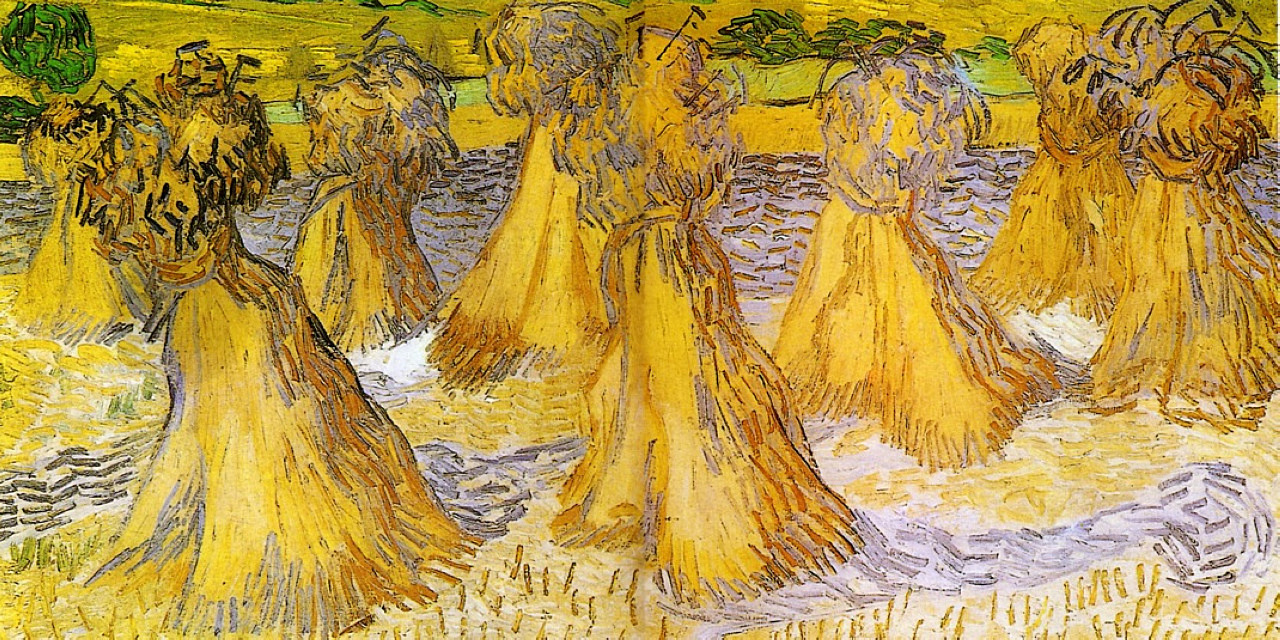
The tenth Gradual Psalm, and final psalm of Monday Vespers in the Benedictine Office, is Psalm 128.
Psalm 128 (129) – Saepe expugnaverunt me
Vulgate
|
Douay-Rheims
|
Canticum graduum.
|
A gradual canticle.
|
1 Sæpe expugnavérunt me a juventúte mea, * dicat nunc Israël:
|
Often have they fought against me from my youth, let
|
2 Sæpe expugnavérunt me a juventúte mea: * étenim non potuérunt mihi.
|
2 Often have they fought against me from my youth: but they could not prevail over me.
|
3 Supra dorsum meum fabricavérunt peccatóres: * prolongavérunt iniquitátem suam.
|
3 The wicked have wrought upon my back: they have lengthened their iniquity.
|
4 Dóminus justus concídit cervíces peccatórum: * confundántur et convertántur retrórsum omnes, qui odérunt Sion.
|
4 The Lord who is just will cut the necks of sinners: 5 Let them all be confounded and turned back that hate Sion.
|
5 Fiant sicut fœnum tectórum: * quod priúsquam evellátur exáruit:
|
6 Let them be as grass upon the tops of houses: which withers before it be plucked up:
|
6 De quo non implévit manum suam qui metit: * et sinum suum qui manípulos cólligit.
|
7 Who with the mower fills not his hand: nor he that gathers sheaves his bosom.
|
7 Et non dixérunt qui præteríbant: Benedíctio Dómini super vos: * benedíximus vobis in nómine Dómini.
|
8 And they that passed by have not said: The blessing of the Lord be upon you: we have blessed you in the name of the Lord.
|
Arriving...
This psalm is generally interpreted as referring to the arrival of the pilgrims in Jerusalem, at the gates of heaven, or perhaps the point of the return of the Exiles, and so pause to reflect on their journey.
The journey has not been easy; it has been under constant assault from the enemy. The opening verses announce, though, that though hard-pressed by enemies along the way, they have not been overcome.
If one interprets these psalms as following the events of the Passion, the devil has been confounded and turned back, as will all be who do his work in the world: we can now look forward to the freeing of the souls in Hades.
The enemy within
Many of the Fathers and Theologians interpret it also as referring to the ongoing struggle in this world against those who oppose Christ both within and outside the Church. St Cassiodorus, for example, comments:
The prophet teaches us to endure the troubles of the world patiently, for he demonstrates that the Church's sufferings are numerous. The prophet is filled with the Holy Spirit, and in the first section he urges Israel to tell of the great struggles and the nature of the guile which they have endured from their enemies, so that none of the faithful may seem to despair because of their afflictions.Similarly, St Robert Bellarmine comments:
God's people, in trouble, console themselves by the reflection that troubles and difficulties are nothing new to them, and that, through God's assistance, they have always got through them. This applies to the Jews, and the repeated attacks of the neighboring nations, while the temple and the city were being rebuilt; and it also applies to the Church of Christ, that scarcely ever had a moment's respite from the assaults of pagans, heretics, or bad Christians. He, therefore, says, "Often have they fought against me from my youth, let Israel now say." Let not Israel, God's people, be surprised if her enemies assail her; for it is no new story with her; because, from her very infancy, at the first dawn of the Church, she suffered persecution from Cain, and similar persecutions have been going on to the present day.”The cursing psalms
This psalm presents difficulties for many modern readers by virtue of its imprecatory or cursing words. St Robert Bellarmine, however, notes that these should be viewed as prophecy or prediction, not curses: God will not ‘cut off the necks’ of the penitent, but only those sinners who refuse to repent.
Cassiodorus provides a useful discussion of the issue:
In the second section he inveighs with the spirit of prophecy against obstinate foes of the Church by means of certain comparisons, calling down on them what he knew would befall them at the future judgment…Let us observe that this psalm has mounted the tenth level, borne aloft, so to say, on twin wings; for its right wing is the proclaimed conversion of the proud after their manifold persecution of the Church, and the left is the desired confusion of those who hate Sion. The prophet utters this not because he is eager to curse, but out of feeling for the truth to come; for though we are bidden to pray even for our enemies, he revealed the nature of the truth concerning the obdurate who are doomed to perish. These words were not, however, uttered without fruit as the outcome of his great devotion, for many people save themselves by correction from the punishment which was foretold, once they realise the fate that overhangs the obstinate.It is, then, meant to be a call to action, to conversion.
You can find notes on the individual verses of the psalm in the context of Monday Vespers as follows:
Introduction to Psalm 128 (Saepe expugnaverunt me) (2013)
Ps 128 v1-2
Psalm 128 v3
Psalm 128 v4
Ps 128 v5-6
Ps 128 v7
Or you can go to the next part in this Lenten series, on Psalm 129.
Introduction to Psalm 128 (Saepe expugnaverunt me) (2013)
Ps 128 v1-2
Psalm 128 v3
Psalm 128 v4
Ps 128 v5-6
Ps 128 v7
Or you can go to the next part in this Lenten series, on Psalm 129.


